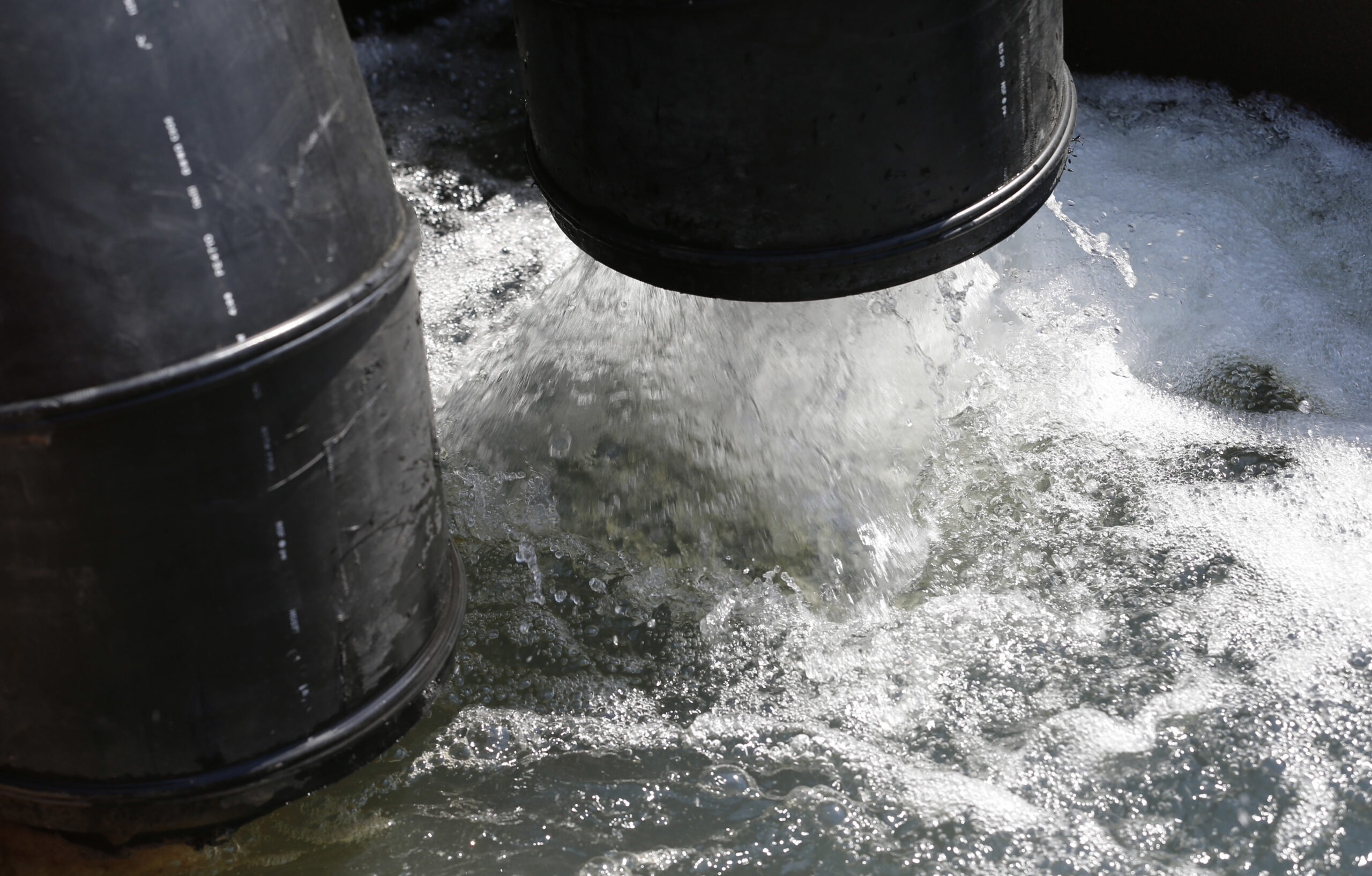Georgia Power is continuing to clean up coal ash, a byproduct from burning coal for electricity that can contain toxic materials. The utility presented its progress to state lawmakers at a hearing Thursday.
The utility is closing all 29 of its coal ash ponds, big, open ponds of water mixed with ash that run the risk of leaching toxics into groundwater, or having it flood over the top of the pond into neighboring waterways.
“In a short couple of months, we will cease to place ash in ash ponds forever,” Aaron Mitchell, general manager of environmental affairs at Georgia Power, told legislators from the Georgia House and Senate.
Going forward, the ash will be reused or put it in dry storage. Of its 29 ponds, Georgia Power is draining and excavating the ash from 19 of them, and moving some of that coal ash to landfills. Some of it will be combined with ash in the other 10 ponds, which will be drained and then capped.
“From a water quality standpoint this is very good,” said Jac Capp, chief of the water branch of the Georgia Environmental Protection Division.
Still, environmental groups have raised concerns that the process of draining the ponds isn’t stringent enough, and that the ponds that are drained and sealed in place, rather than emptied into landfills, could eventually contaminate groundwater.
Lawmakers didn’t hear from the public at the Thursday meeting, but Mark Goolsby, from Juliette, Ga., attended it. The house his family lived in for generations is across from Plant Scherer, one of the largest coal-fired power plants in the country. Goolsby said he wants to see more clean up around the plant.
“It’s been rough,” he said. “I don’t think they’re doing it fast enough. Air quality is bad. I mean I couldn’t even raise goats, I couldn’t raise donkeys, they were dying.”
Last year, environmental groups released an analysis finding groundwater contamination at some power plants in Georgia. Georgia Power has said its ponds have not affected anything outside of power plant property.
There are a couple bills introduced in the state legislature that would further regulate coal ash, but lawmakers didn’t discuss them at the coal ash hearing.
Georgia Power operates five coal-fired power plants, and it has plans to close one of those. The coal ash ponds, though, are located at more than just those five sites, since there used to be more coal plants in the state. There are ponds, for instance, at Plant McDonough, which is on the Chattahoochee River in Smyrna. The plant used to burn coal, but was converted to natural gas in 2011.
Correction: This report has been corrected to report Georgia Power’s plans to move some of the coal ash from the 19 ponds it’s draining and excavating to landfills, and some to the other 10 ponds that will be drained and capped.








